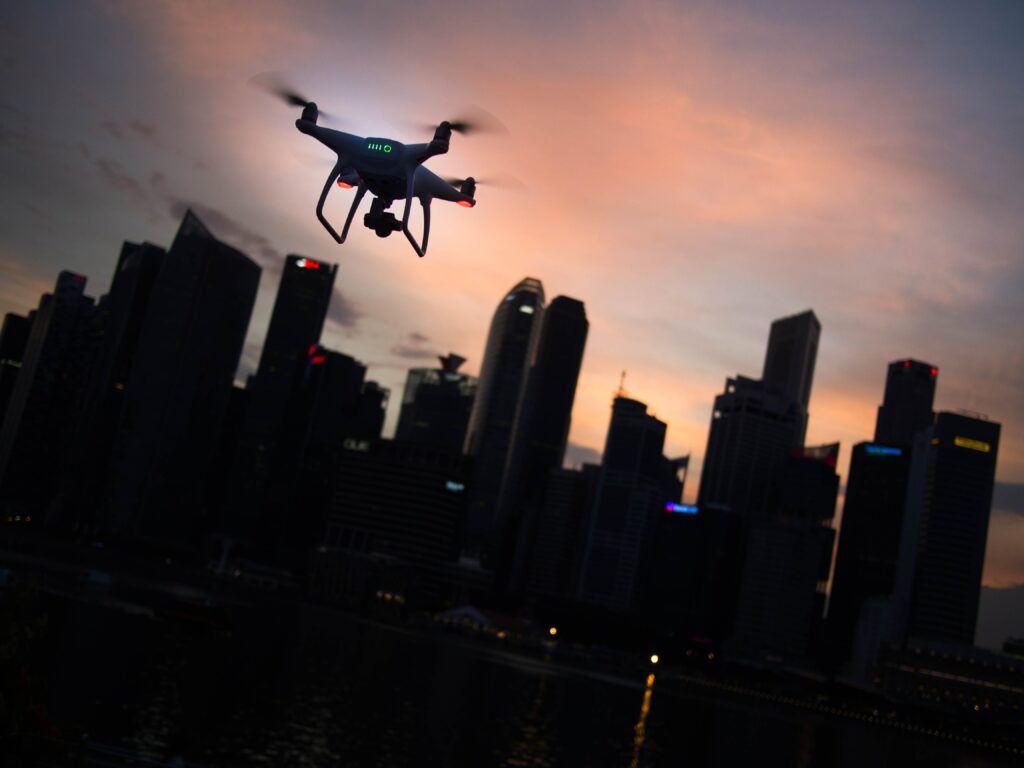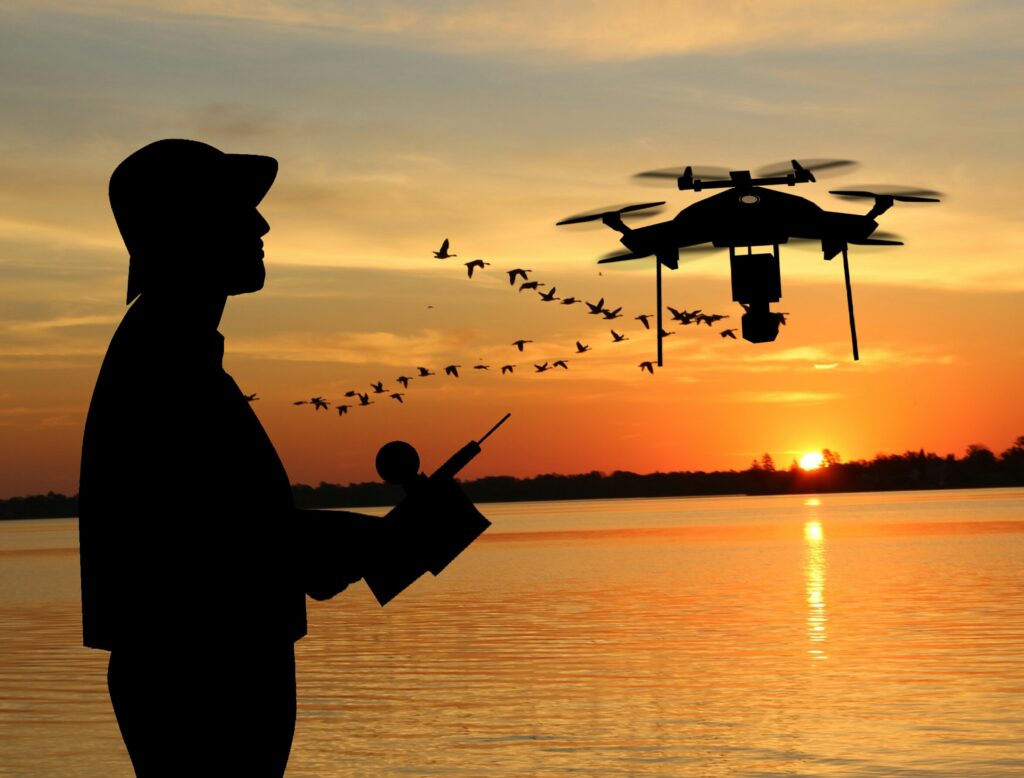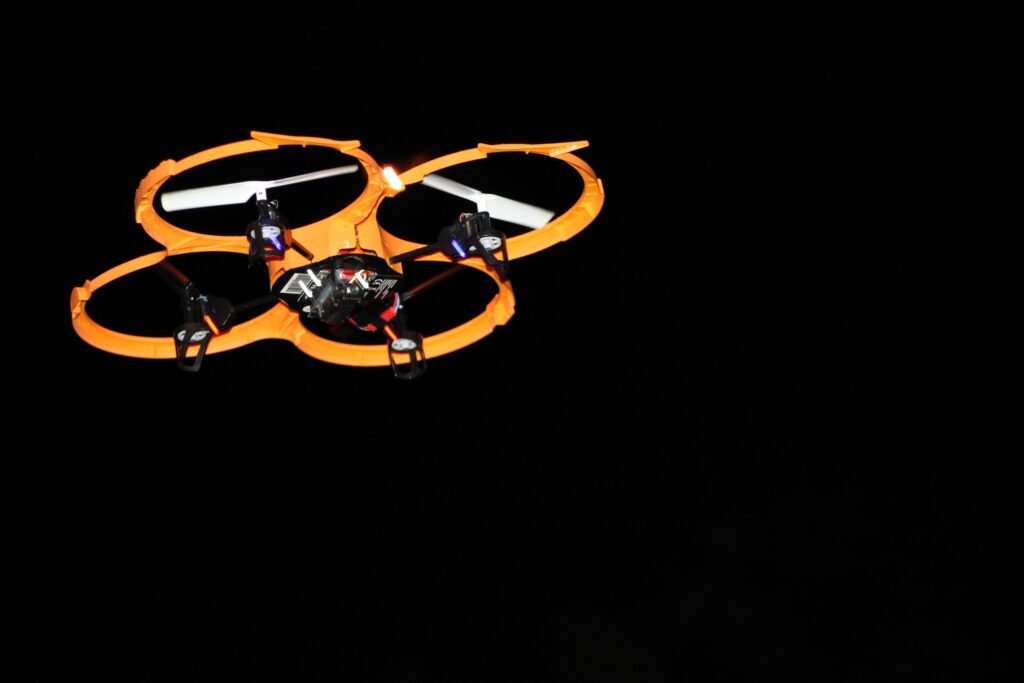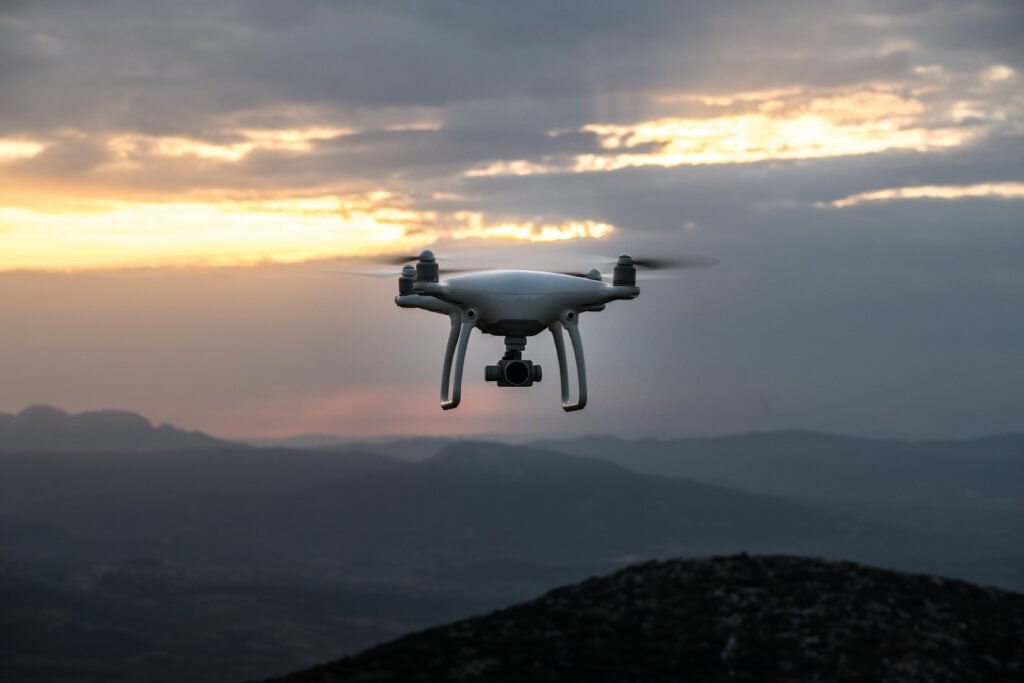Can Drones Fly At Night ? – New FAA UAS Rules

Every day, drones are becoming more dominant in our daily lives. More and more people are purchasing these devices for fun, taking stunning videos, or racing. The FAA (Federal Aviation Administration) realizes this and wants to ensure no one is risking their safety and others while flying. One risk drones pose is flying at night. As a drone pilot, flying at night can be more difficult because you would need to be more alert and aware of your surroundings since not everything will be lit.
If you want to know about the operation of UAS (unmanned aircraft systems) at night, their requirements, and regulation, then you are in the right place. In the past, without operating, waiver, and risk mitigation approaches, it was not allowed to fly drones at night but now, when the new rule went into effect on 21th of April 2021, night flight is now legal.FAA Regulation Part 107-29
 If you are a new drone pilot or an experienced drone pilot, rules and safety tips are essential for safe operation in the national airspace.
As per the new rule of 21 April 2021, both commercial and recreational pilots can perform drone operations at night. Recreational pilots can fly their drones as long as they are flying for enjoyment only and follow the guidelines of an FAA- recognized Community Based Organization (CBO).
If you are flying commercially, you must fly under FAA regulation part 107 section 29. As long as pilots met the requirements as per this rule, they should be all set! However, Airspace authorizations are still required for flying at night up to 400 ft. control airspace.
If you are a new drone pilot or an experienced drone pilot, rules and safety tips are essential for safe operation in the national airspace.
As per the new rule of 21 April 2021, both commercial and recreational pilots can perform drone operations at night. Recreational pilots can fly their drones as long as they are flying for enjoyment only and follow the guidelines of an FAA- recognized Community Based Organization (CBO).
If you are flying commercially, you must fly under FAA regulation part 107 section 29. As long as pilots met the requirements as per this rule, they should be all set! However, Airspace authorizations are still required for flying at night up to 400 ft. control airspace.
Requirements to Fly Drones at Night
To perform UAV’s drone operations at night as per FAA rules Part 107 section 29, which was revised on 21st April 2021, you have to meet and comply with the following requirements. On that day, multiple changes become effective in conditions and regulation.Anti-Collision Lighting
All types of UAV drones for night operation should be equipped with Anti-collision lights as per FAA rule 91.209 of lights and Section 107.29 (a)(2) & (b) to avoid a collision, and they should be mounted on the top and bottom of UAV’s drones. Moreover:- These Anti-collision (Strobe) lights must have a good flashing rate to provide plausible collision avoidance.
- Anti-Collision lights must be visible from at least three statute miles when the sun is more significant than six degrees lower than the horizon.
- The remote pilot of UAVs in command may reduce the intensity of lights, but they cannot extinguish the lights
Certificate of Waiver
 If you are operating under Part 107, effective April 21, 2021, you do not need a waiver to fly at night, over people, and moving vehicles. However, if your UAS does not have anti-collision lights, you will need a waiver!
If you are operating under Part 107, effective April 21, 2021, you do not need a waiver to fly at night, over people, and moving vehicles. However, if your UAS does not have anti-collision lights, you will need a waiver!
Airspace Authorization
Although you can fly UAVs at night, airspace authorization is still required for operation in controlled airspace for all pilots. Now you required two separate authorization for operation:- Authorization for daytime operation for the desired airspace
- Authorization of extension from day to night for the same date which was indicated on daytime LAANC (Low Altitude Authorization and Notification Capability) authorization.
Additional Considerations
Quick checklist for perfect operation at night- Survey your flying area in the daytime before the operation at night for recognizing all hindrances and potential obstacles.
- Limit your flying area (ceiling and footprint as per minimum required height for safe operation)
- Keep in mind all sorts of limitations related to yourself and the drone.
- Must use Visual observer for sustaining visual line of sight.
- You must be flying under Part 107 if you want to fly over people.
Night Flight Is a Go!
 You can fly drones at night as a commercial pilot over public and moving automobiles/vehicles under FAA regulation part 107 section 29, but you have to comply with requirements of this regulation, such as completing required training and testing, anti-Collision lights requirement and getting a certificate of waiver if needed.
If you are a recreational pilot, you do not fly under the FAA part 107 rules. Follow the correct guidelines and you should not run into any problems. Night-flying can be fun! Follow the rules to make sure to stay safe as well!
You can fly drones at night as a commercial pilot over public and moving automobiles/vehicles under FAA regulation part 107 section 29, but you have to comply with requirements of this regulation, such as completing required training and testing, anti-Collision lights requirement and getting a certificate of waiver if needed.
If you are a recreational pilot, you do not fly under the FAA part 107 rules. Follow the correct guidelines and you should not run into any problems. Night-flying can be fun! Follow the rules to make sure to stay safe as well!
Email
Facebook
Twitter
LinkedIn
WhatsApp